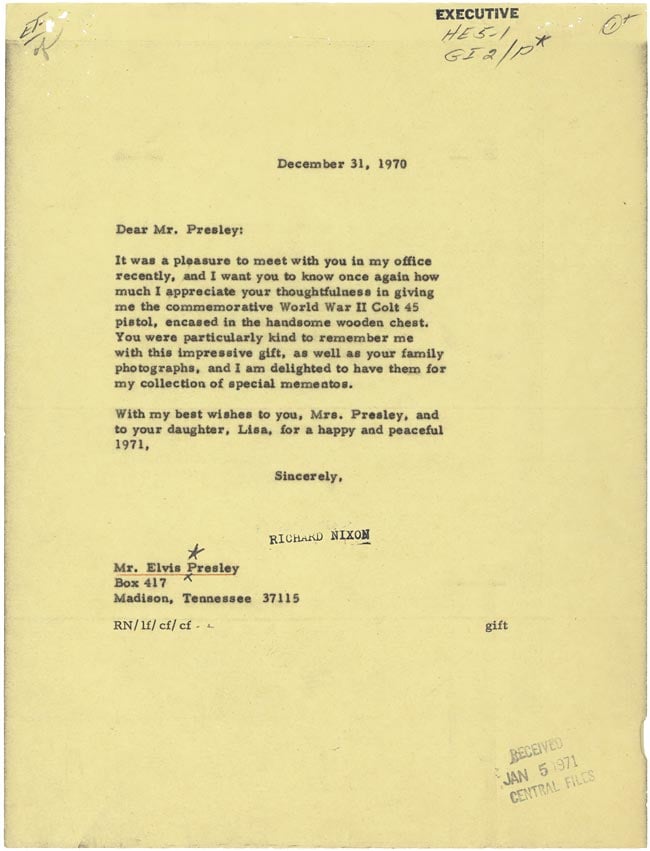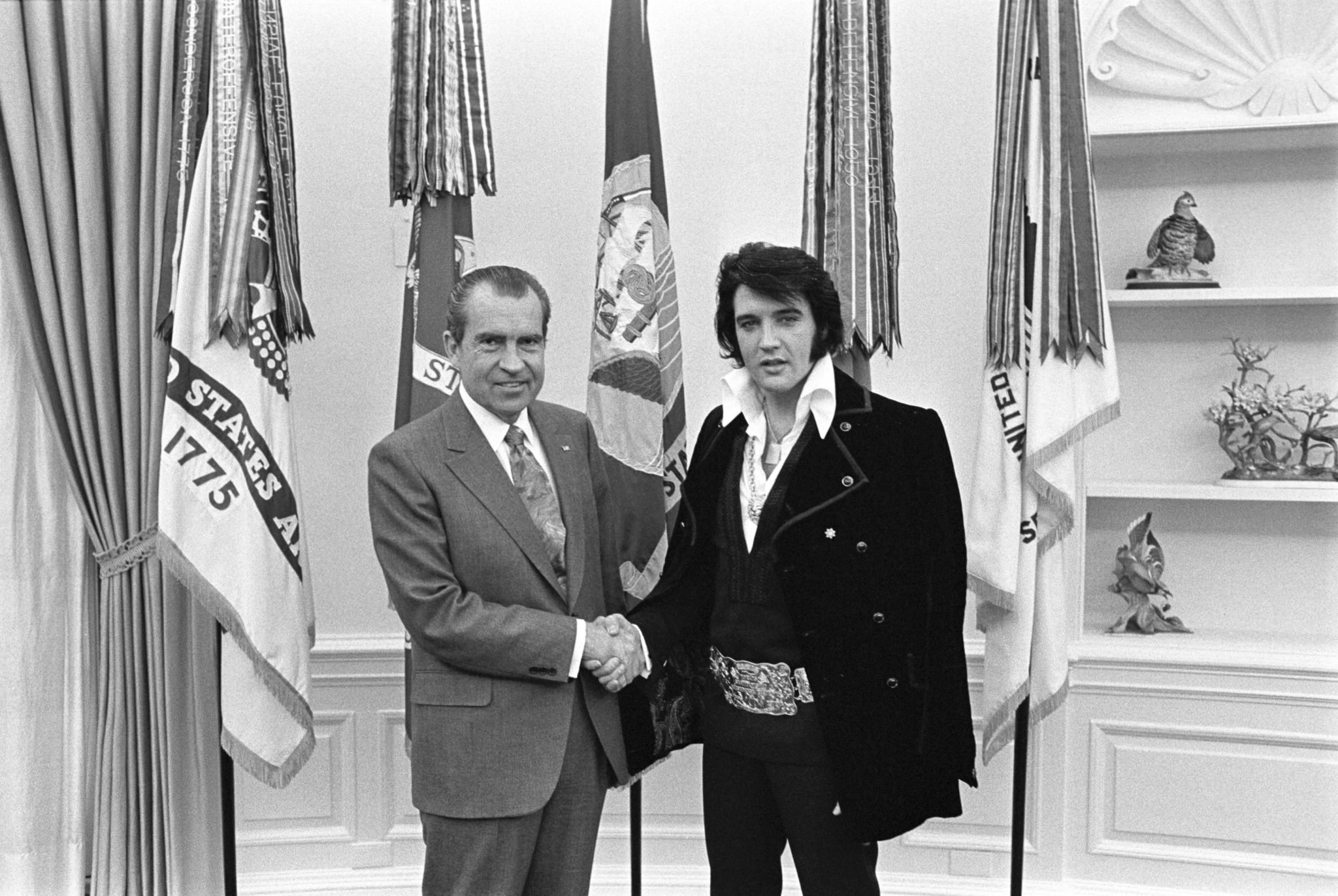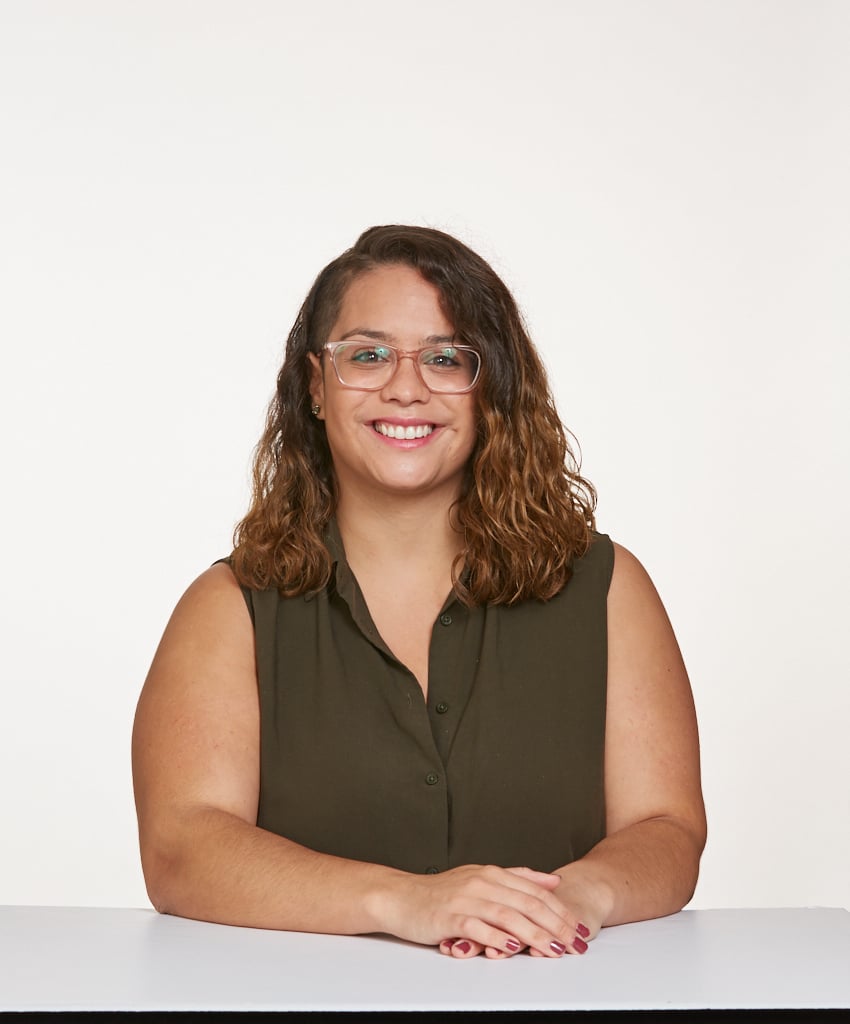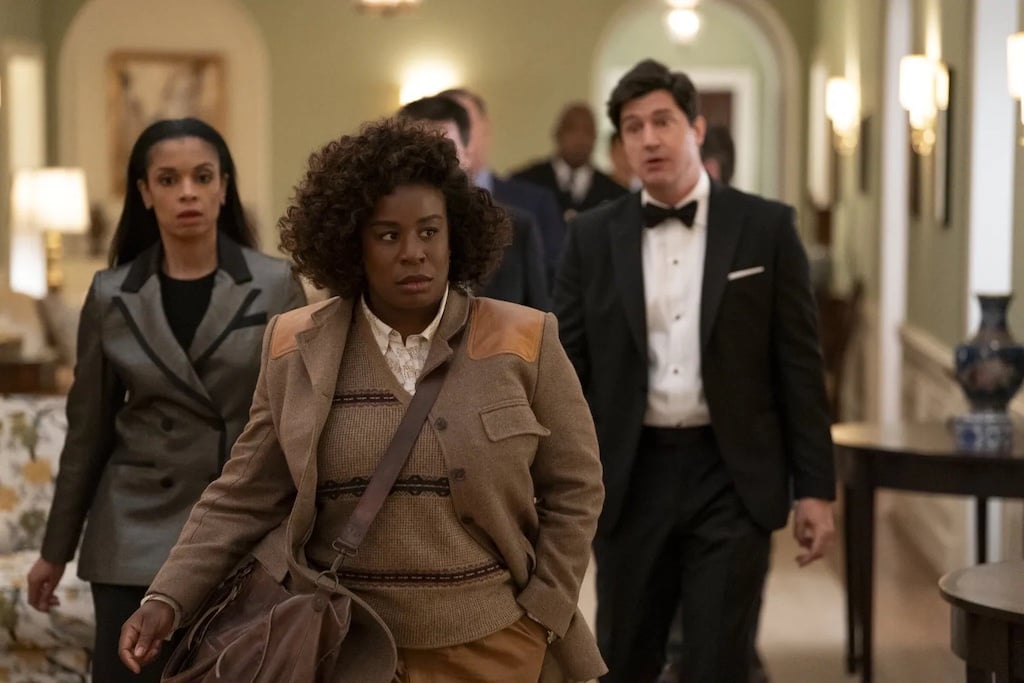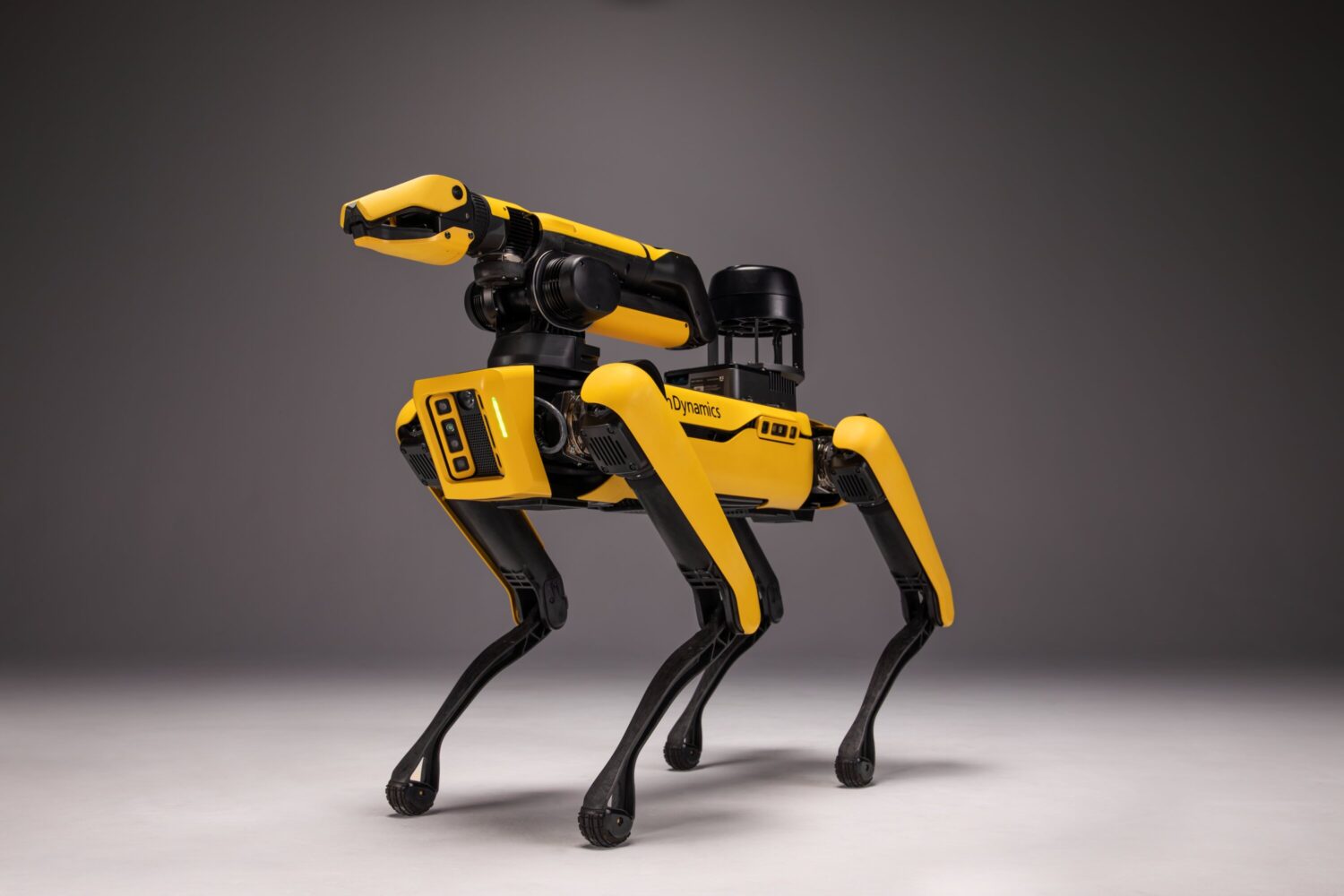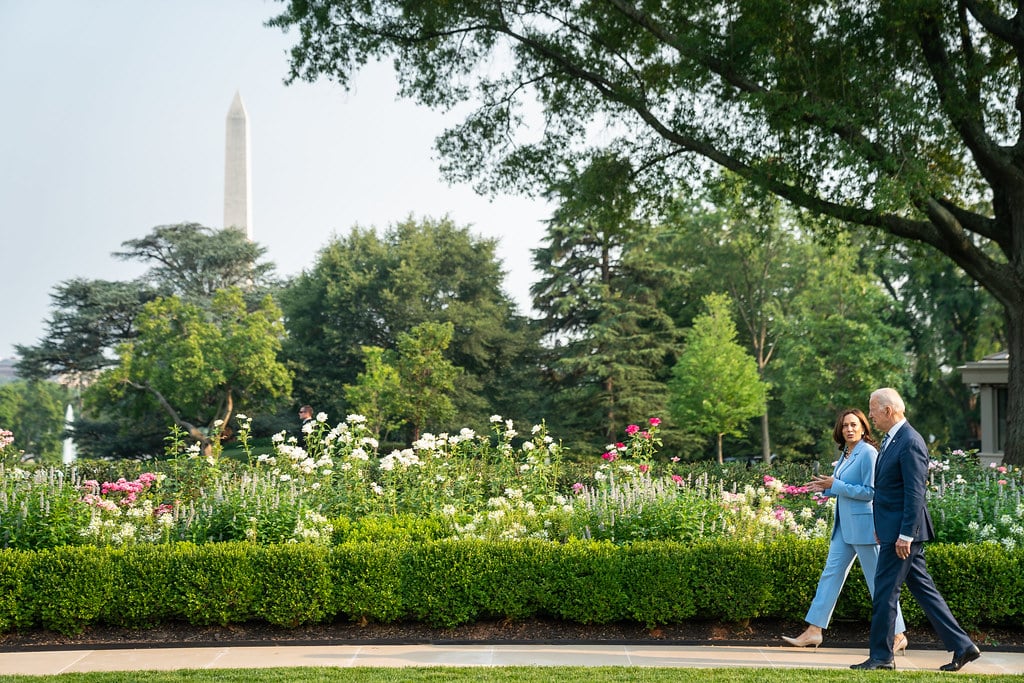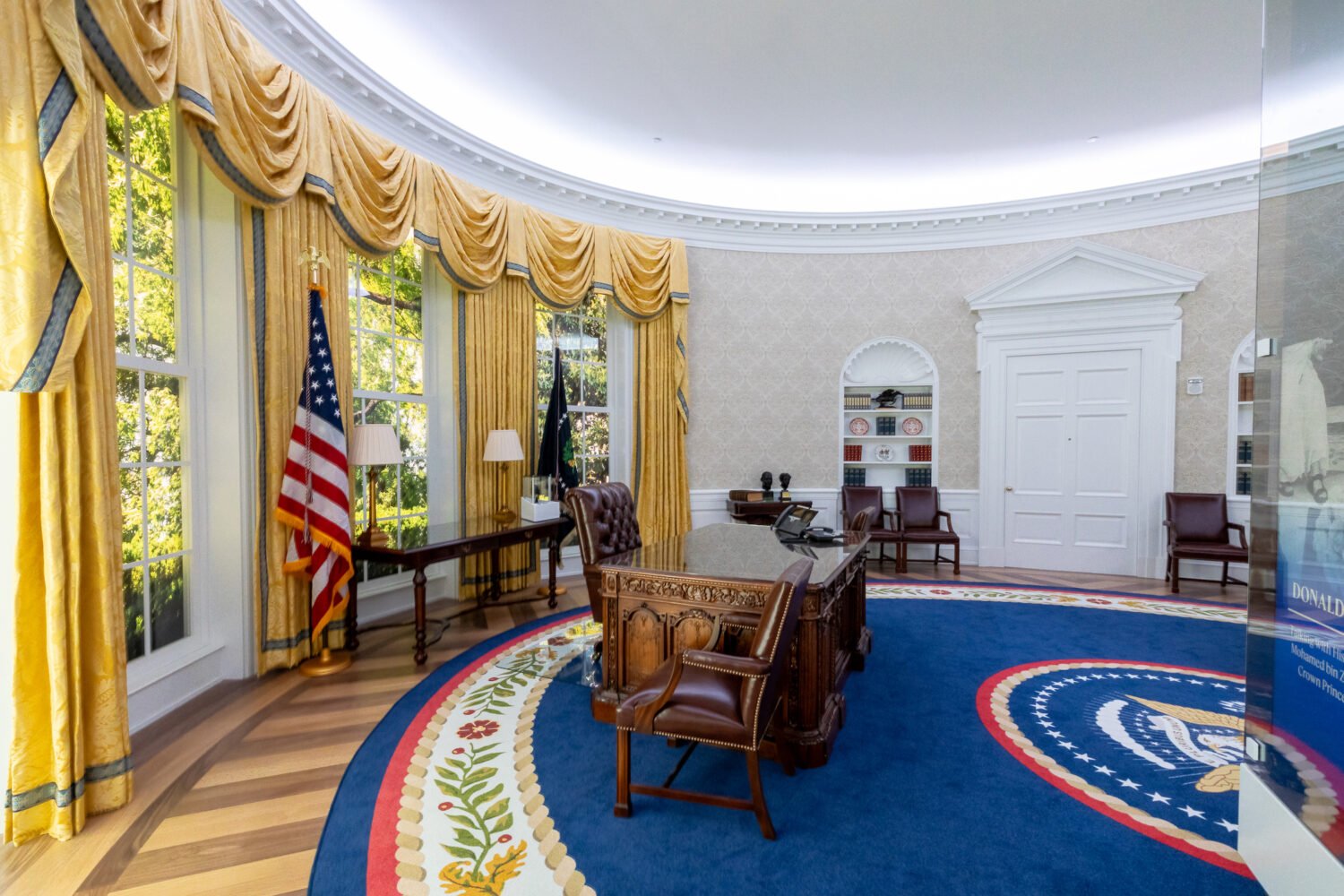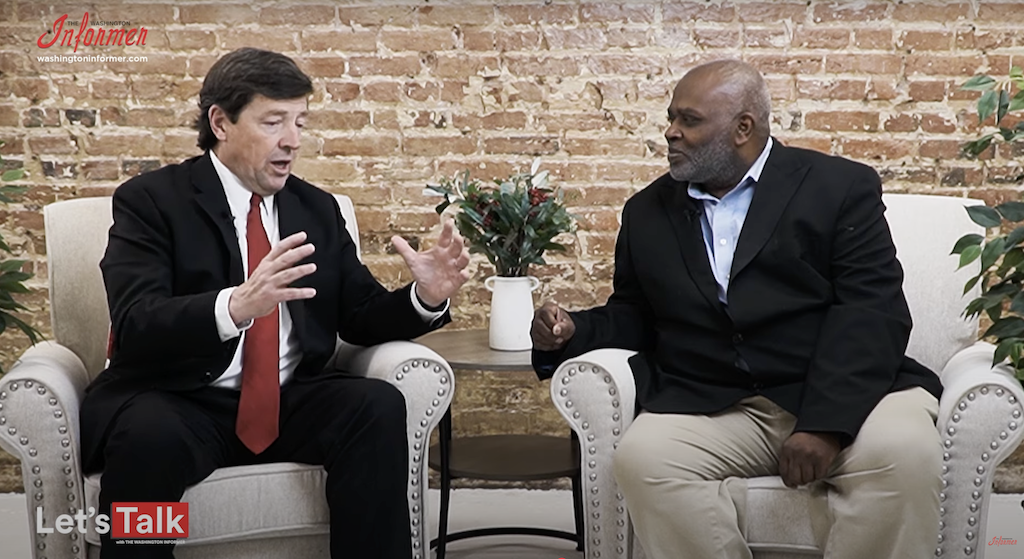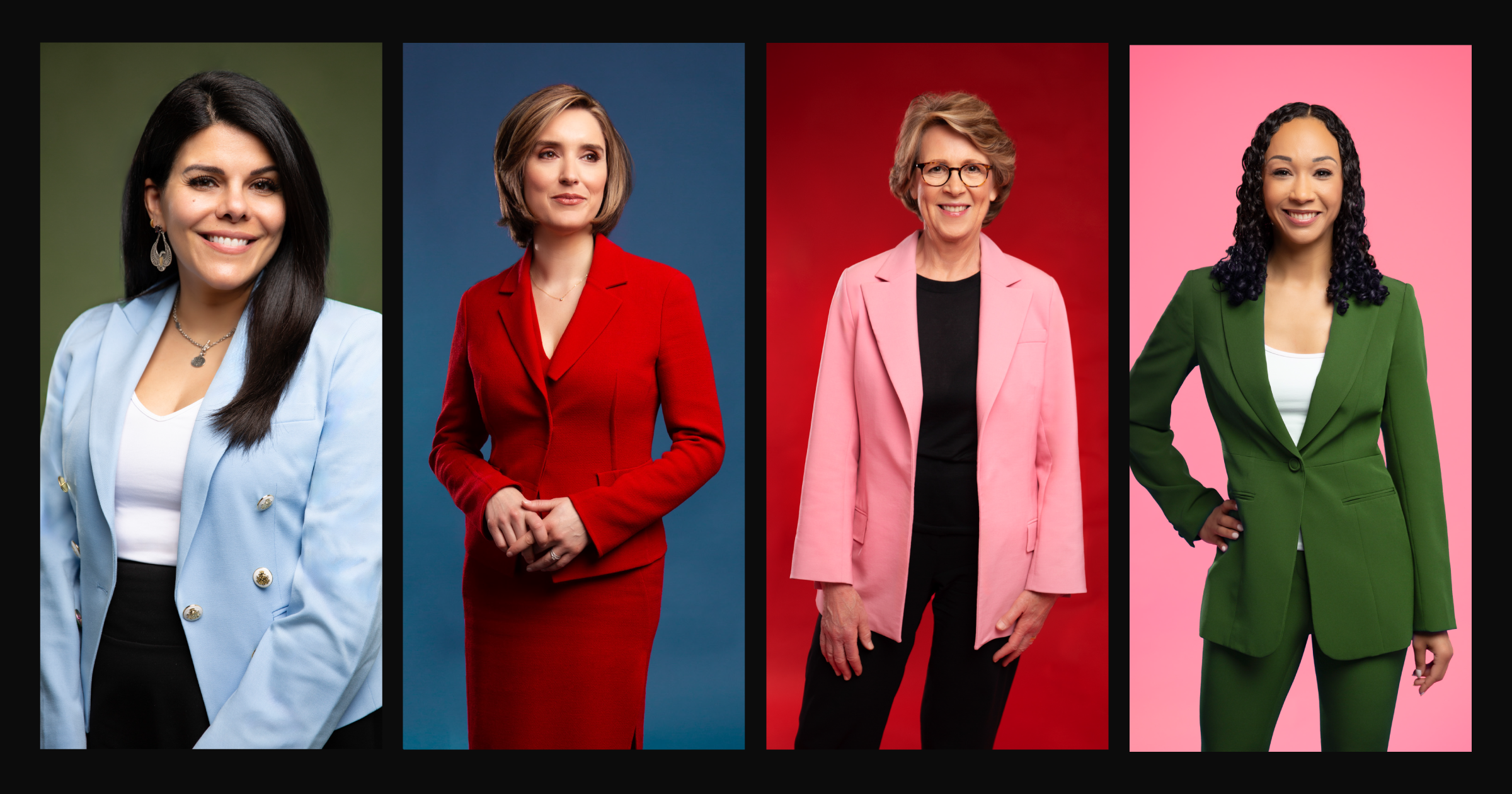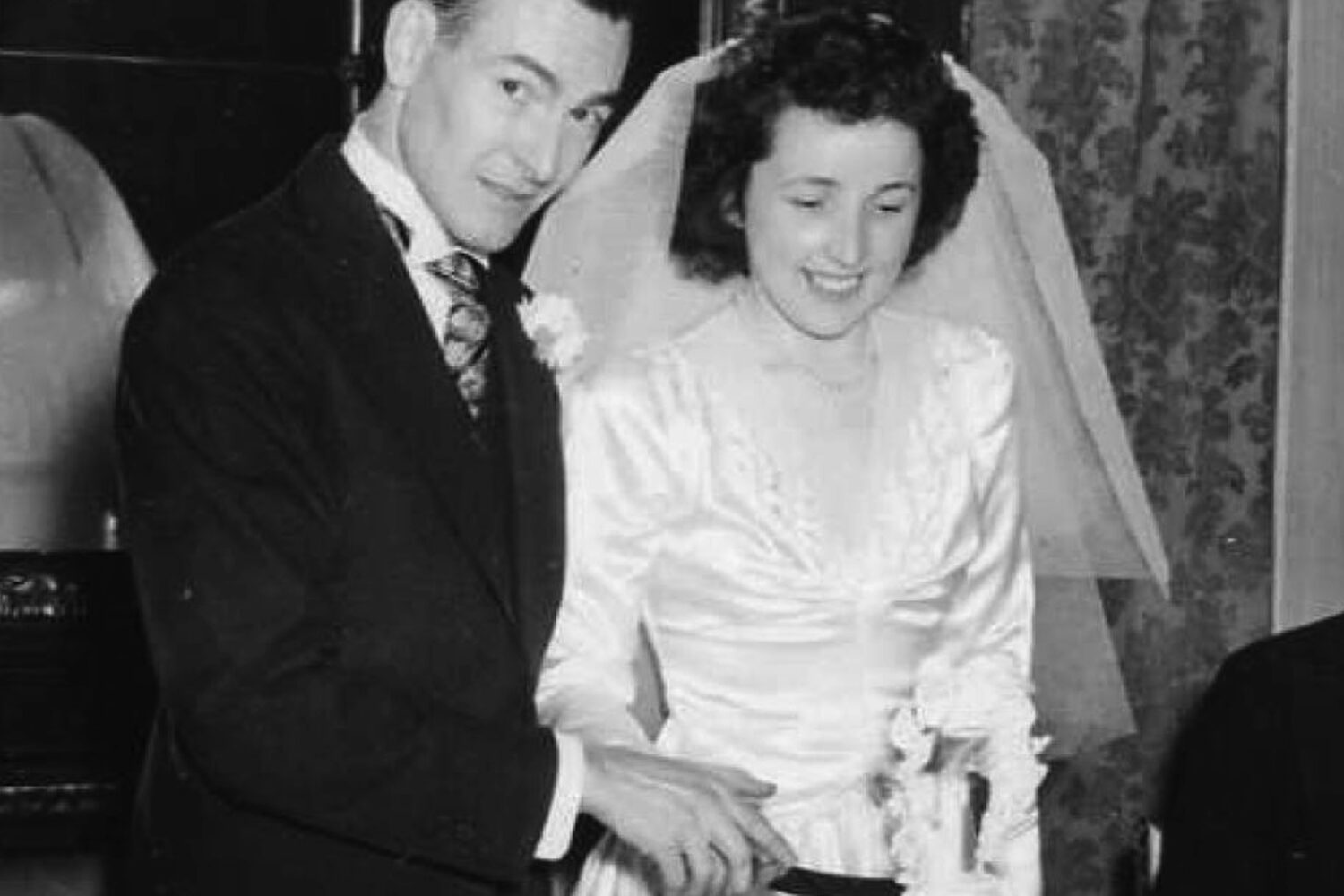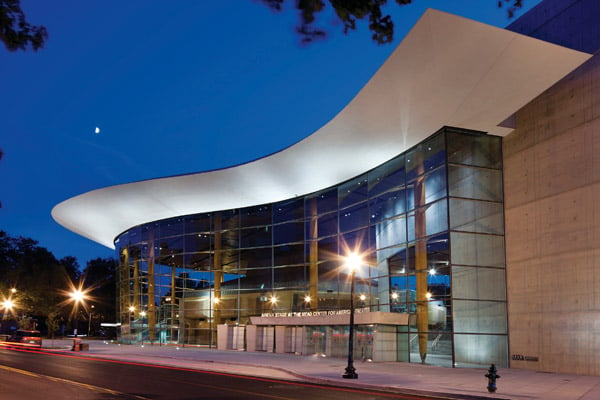Fifty years ago today, Elvis Presley decided to drop by the White House on a whim to meet Richard Nixon. The strangely funny encounter has become one of the most enduringly popular Oval Office moments in history: The bejeweled rock icon, in purple velvet pants and a matching cape blazer, shakes hands with the staid president for a photo-op that looks like it could’ve been fake. It’s the most requested photograph from the U.S. National Archives—an item more coveted than copies of the Constitution.
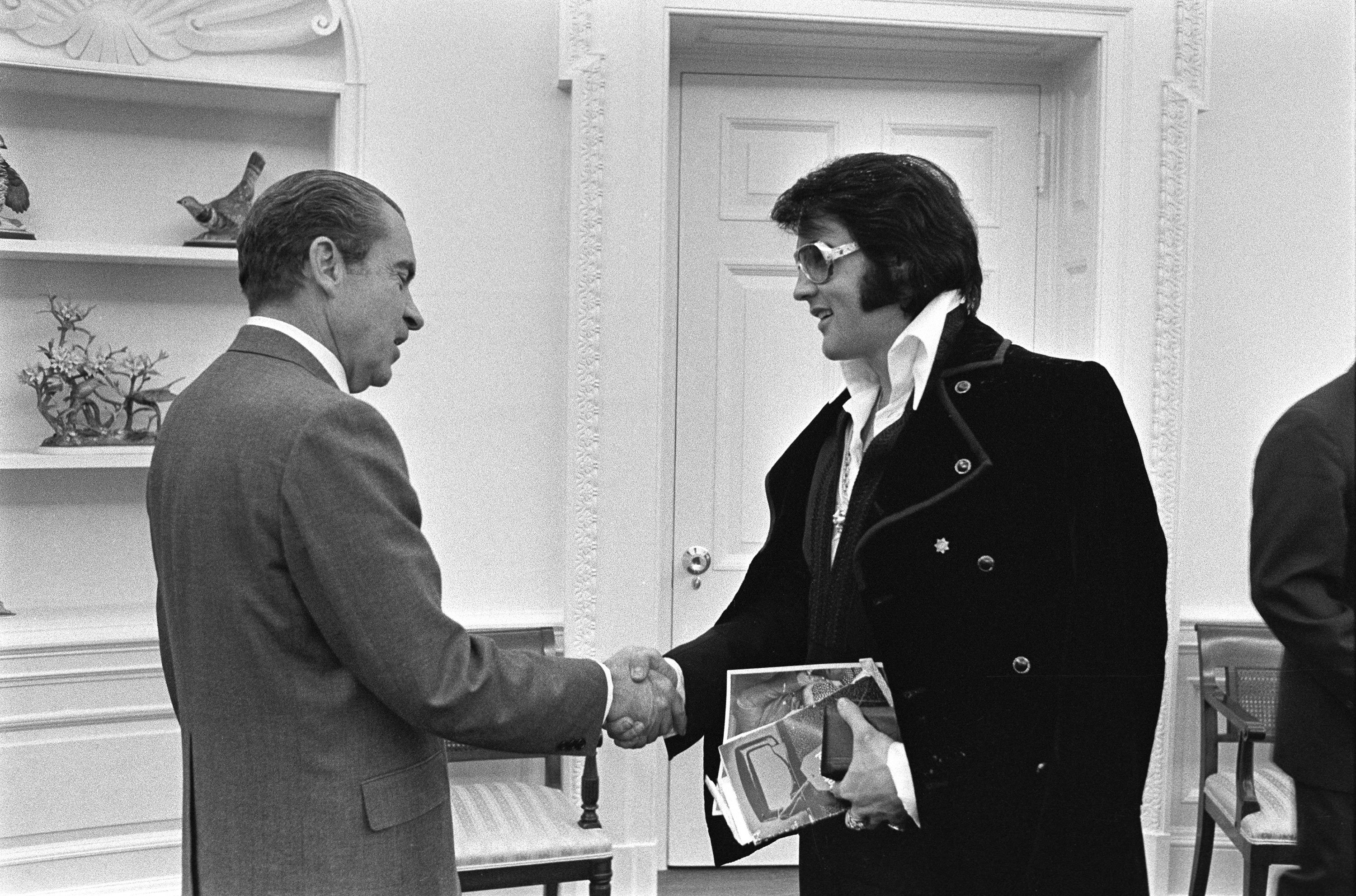
Elvis had landed in Washington on the morning of December 21, 1970, fresh off a red-eye flight from Los Angeles on which he had penned a letter to the president on American Airlines stationery. Once they landed, the King directed his limo to Pennsylvania Avenue. He jumped out to hand the note to Secret Service guards, who didn’t immediately recognize him despite his high-collared topcoat and cane.
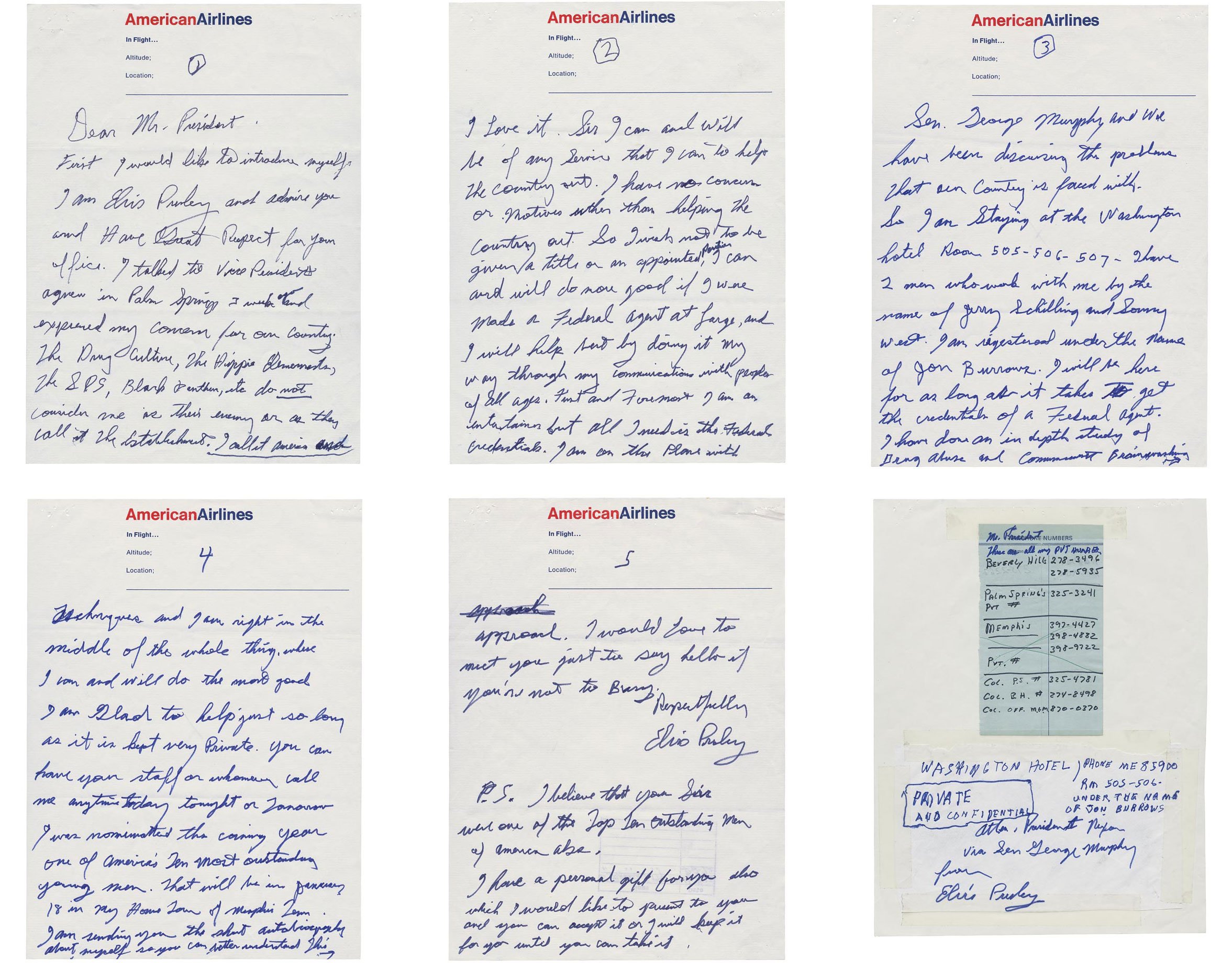
Elvis was eager to get involved with the White House’s anti-drug campaigns. “I have done an in-depth study of drug abuse and Communist brainwashing techniques and I am right in the middle of the whole thing where I can and will do the most good,” he writes.
What Elvis really wanted was a special badge from the Bureau of Narcotics and Dangerous Drugs to add to his personal collection of police badges. Jerry Schilling, a close friend of Elvis who joined the visit to Washington, later described the King’s penchant for flashy signals of authority in a conversation with the Nixon Presidential Library: “It was kind of a James Bond thing to him as well, but with a lot of respect for it.”
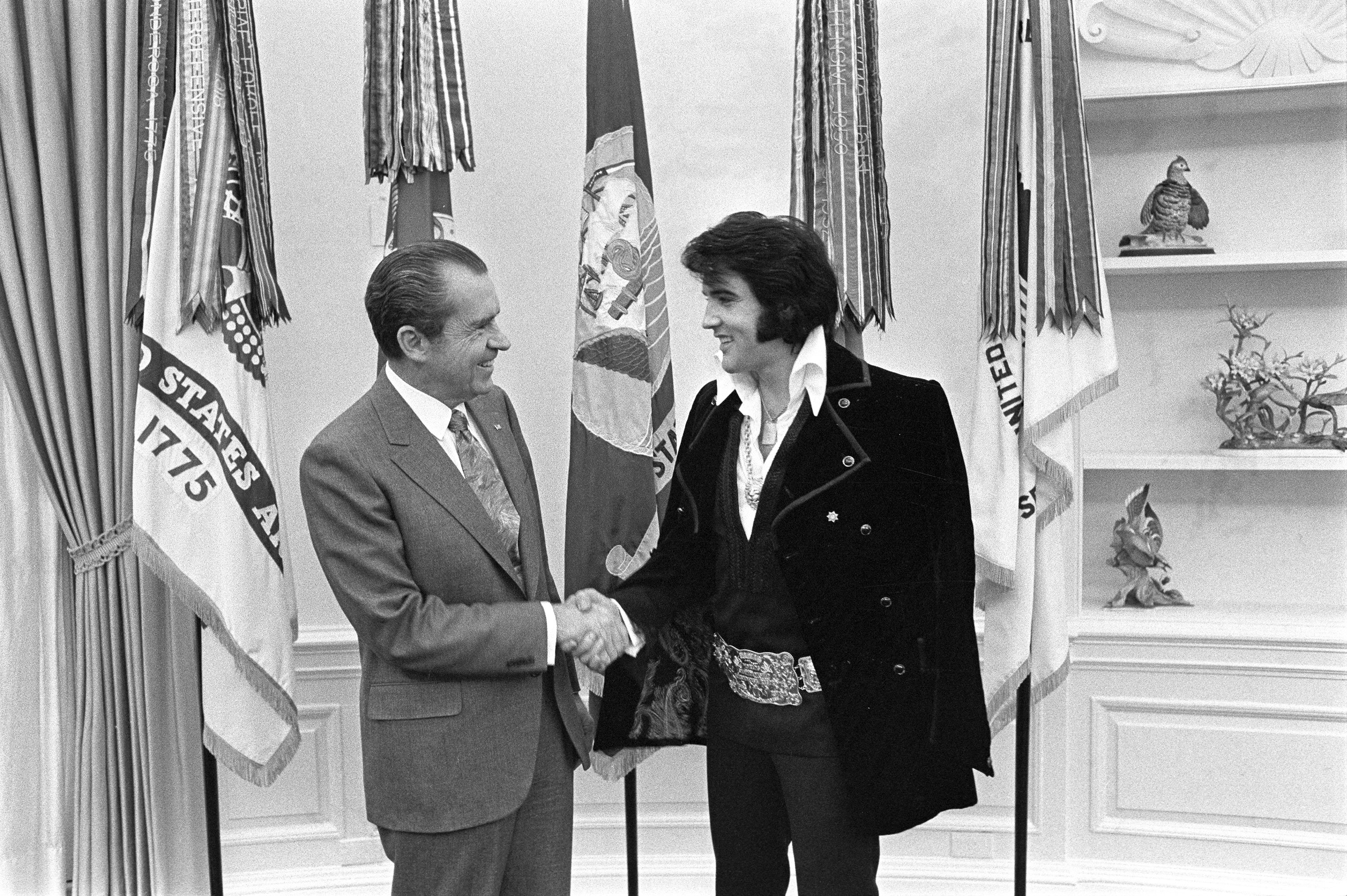
In the West Wing, “we laughed all morning,” says Dwight Chapin, the then-deputy assistant to the president who arranged the meeting. “This was a very humorous situation among [the White House staff]. Everybody thought we were joking.”
Within a few hours, Egil “Bud” Krogh, also a deputy assistant to the president, was questioning the rockstar’s intentions before he got to the Oval Office. “There was an interrogation,” Schilling described. “That’s a tough word, but, you know, ‘Why do you want to meet the President? What do you want to talk about?’ And it was a real nice, serious conversation between Bud and Elvis.”
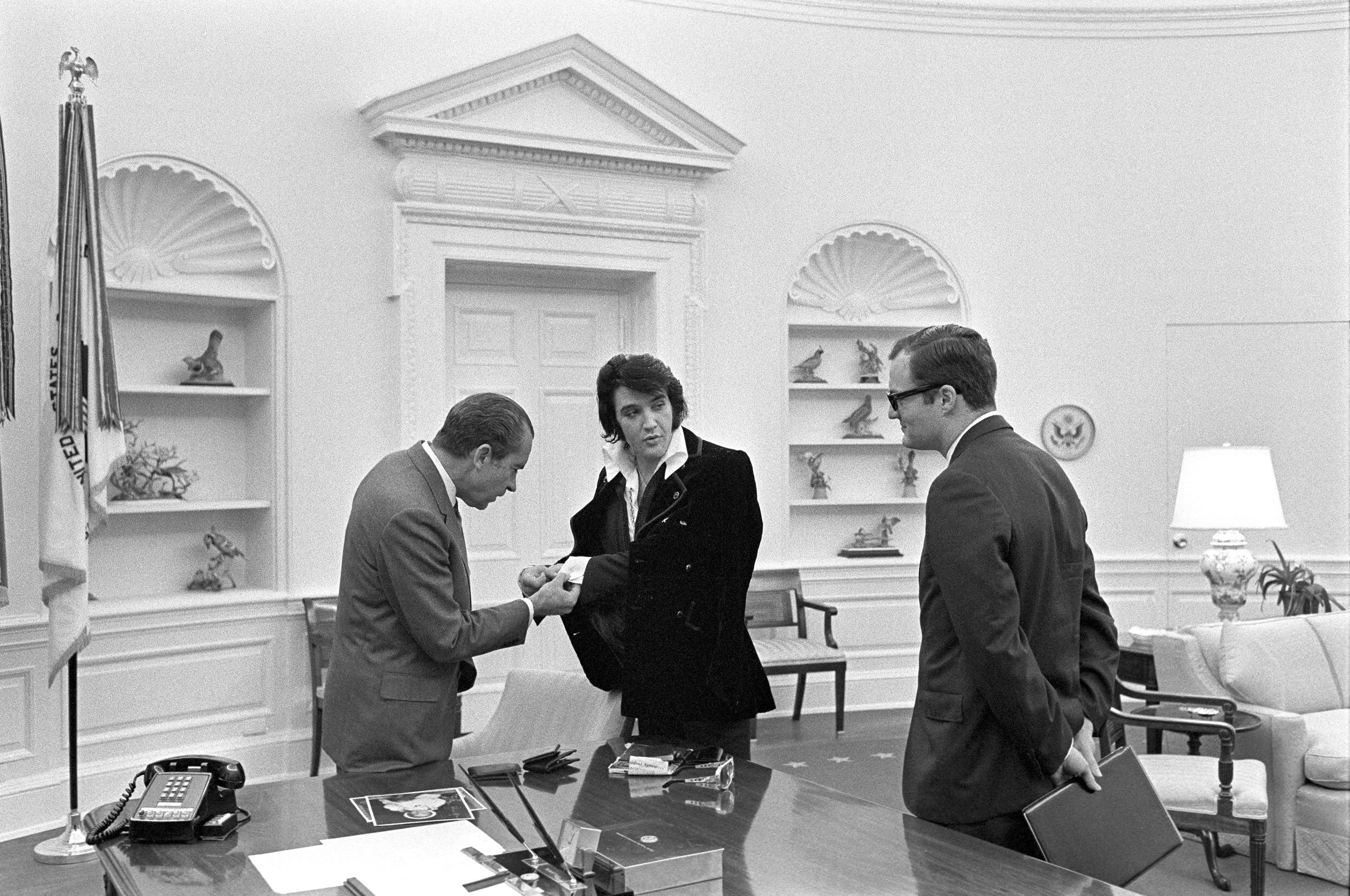
What exactly did they talk about? Krogh, the sole staffer who witnessed the Elvis-Nixon exchange in the Oval Office, later wrote meeting notes that sketched out the conversation: After the legendary photo-op, Elvis told the president that he was on his side and he wanted to help reach young people to discourage drug use. (He also added a dig at the Beatles, which he claimed had promoted “anti-American spirit,” much to Nixon’s surprise.)
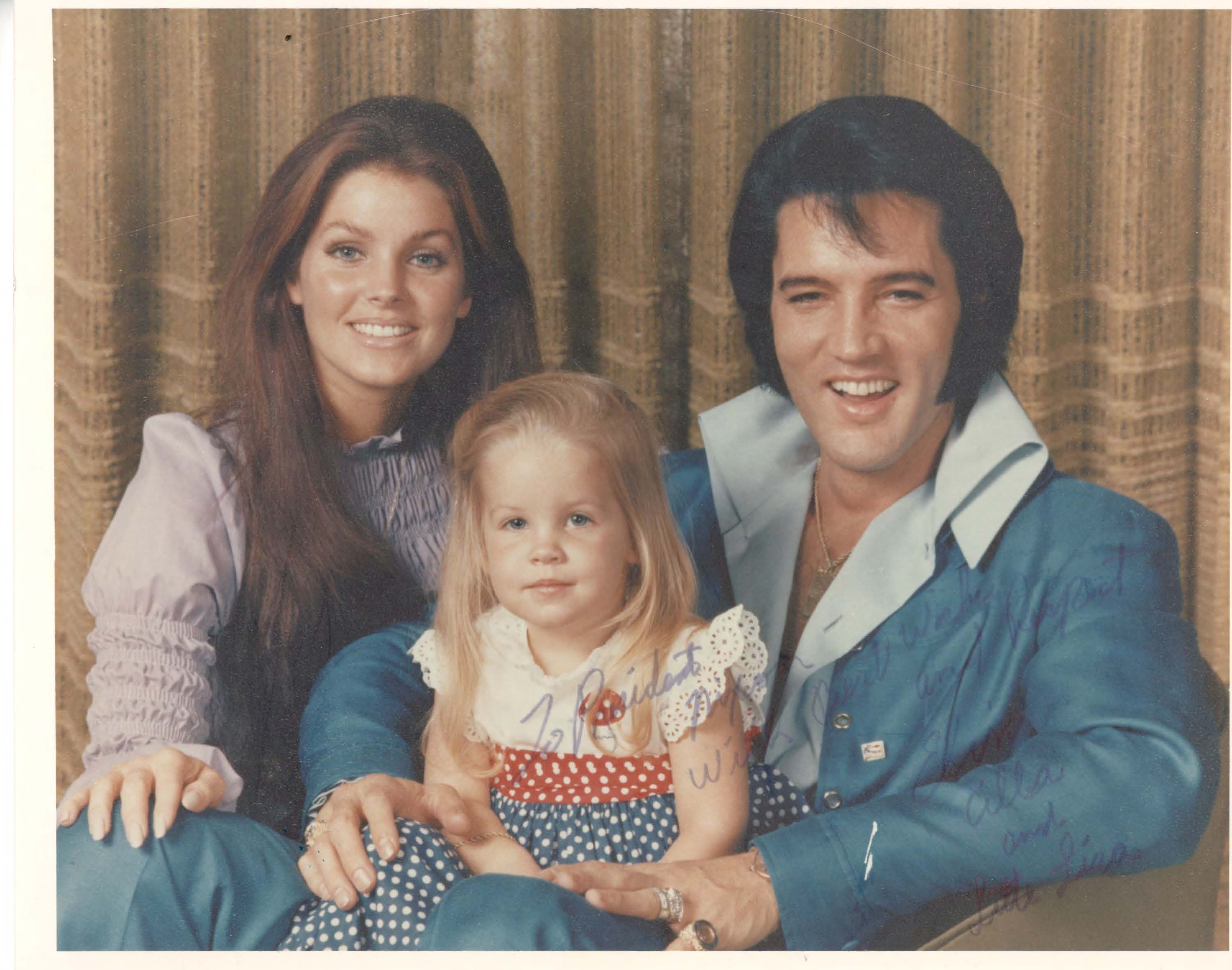
Elvis didn’t lose sight of his goal, though, and he asked the president about the narc badge he desperately coveted. (Before coming to the White House, Elvis unsuccessfully attempted to secure a badge at the bureau’s offices.) When Nixon asked Krogh whether they could make it happen, the aide said yes.
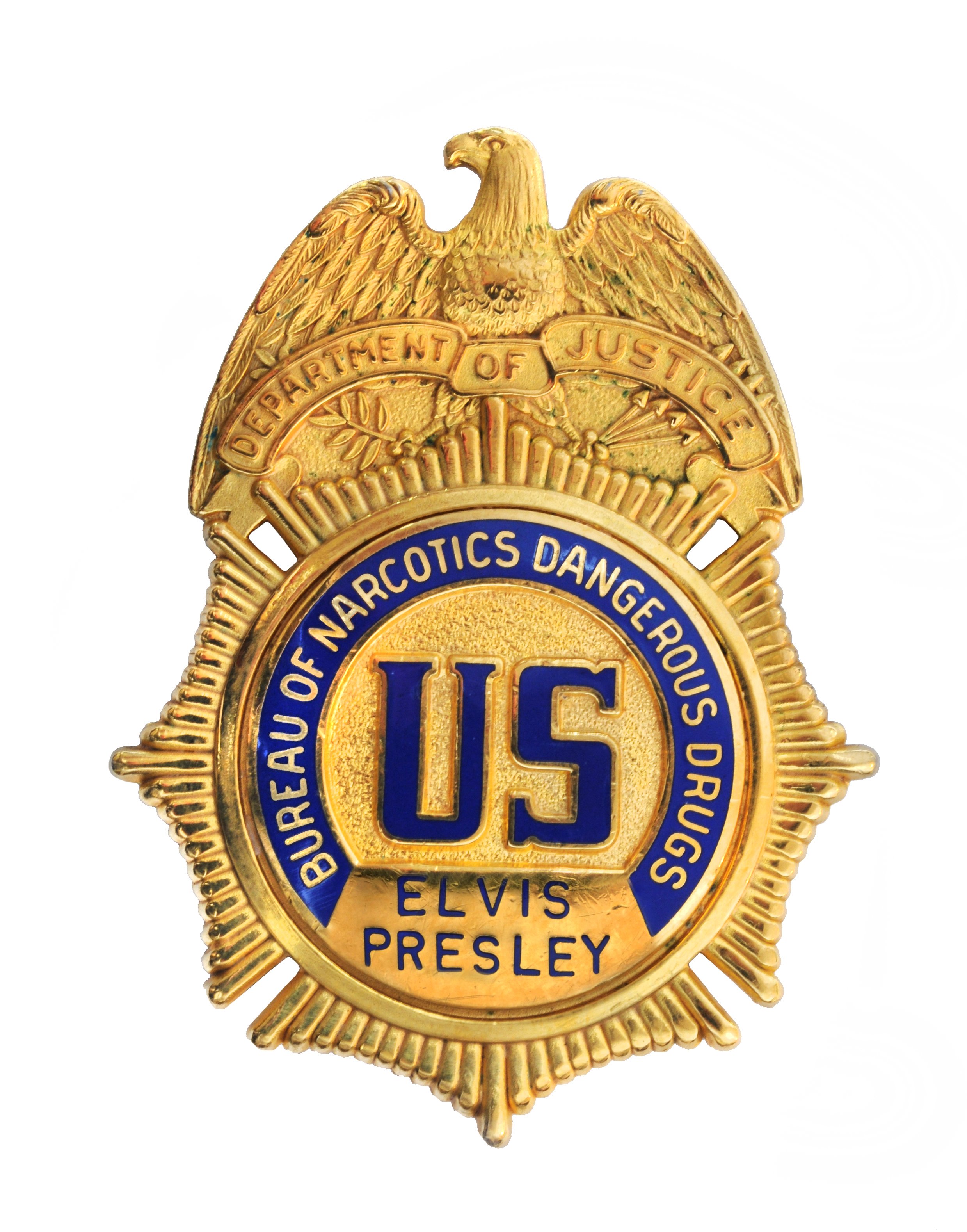
“At the conclusion of the meeting, Presley again told the President how much he supported him,” wrote Krogh in his post-meeting memo. “Then, in a surprising, spontaneous gesture, put his left arm around the President and hugged him.”
Outside the Oval Office, the White House was buzzing. When staffers tried to bring Elvis on a tour, they had to stop because “there was just too much commotion,” said Schilling. “The girls that worked at the White House were peeking out of the offices. And Elvis kisses one of the secretaries.”
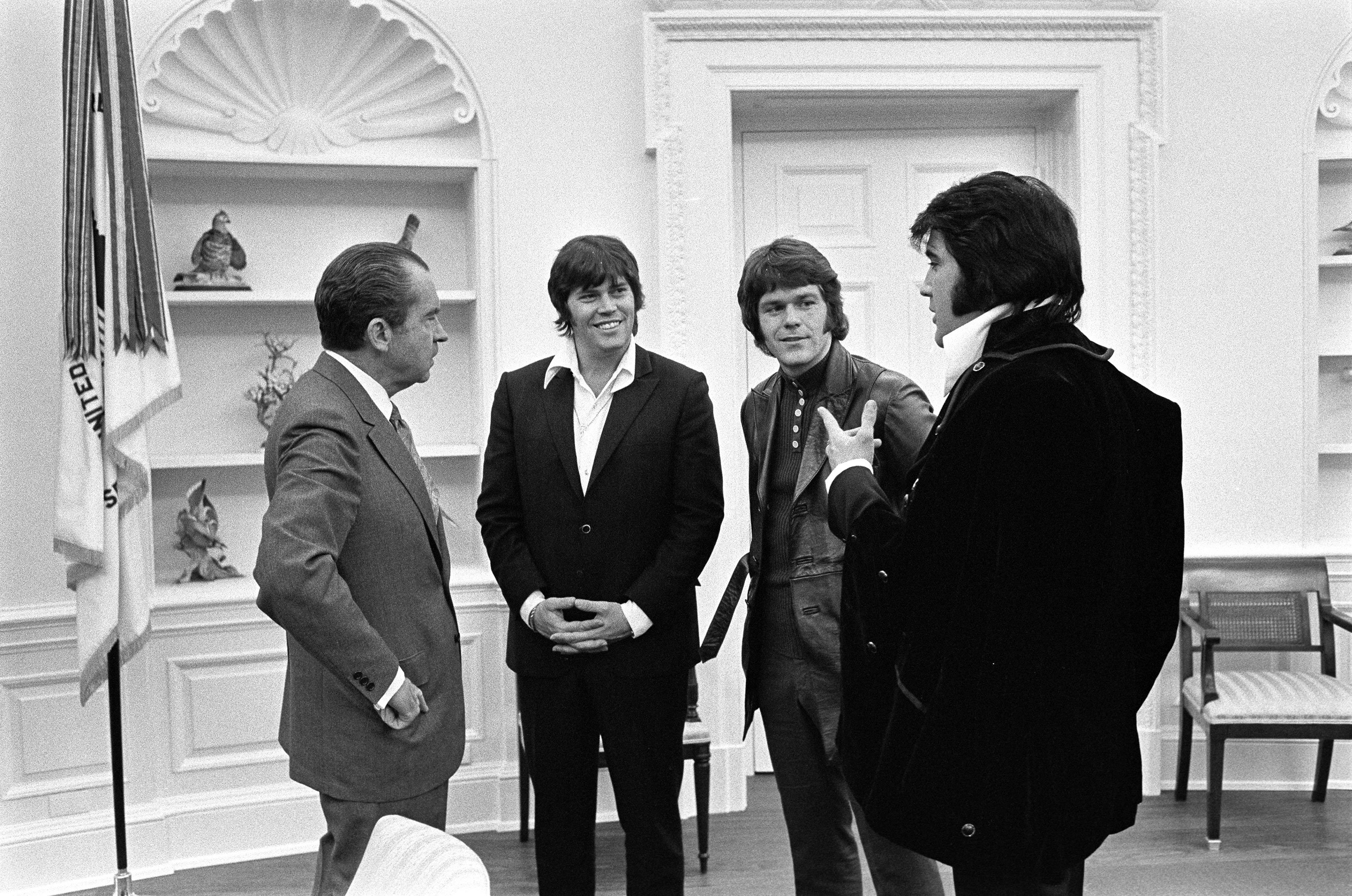
For decades, people have gravitated toward this special meeting and kept the story of this bizarre conversation alive—see the two Hollywood versions: The Dick Cavett-narrated “mockumentary” Elvis Meets Nixon (1977) and the Michael Shannon-Kevin Spacey match up in Elvis & Nixon (2016). The photograph is still consistently popular. “It’s the magnetism of both of the men and their historic-ness that gives the picture such meaning,” Chapin tells Washingtonian. He still chuckles when he retells the story of that memorable day. Though he didn’t have a chance to meet Elvis 50 years ago in the White House, Chapin is an even bigger fan of the singer now.
As for Nixon, he didn’t really take Elvis up on the anti-drug work, but the two stayed in touch for years after taking their iconic photograph. He later wrote Elvis to thank him for the gift: A World War II Colt .45 pistol.
